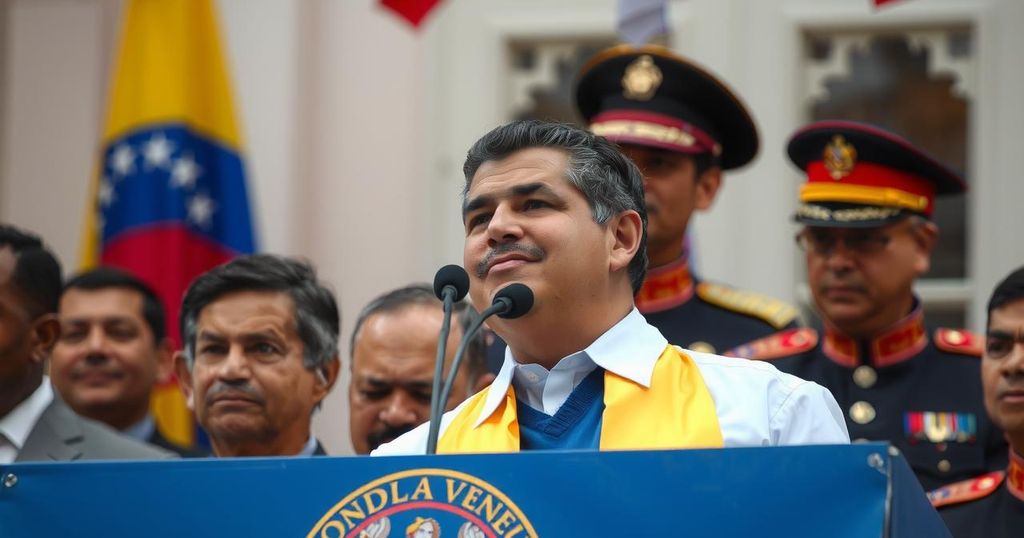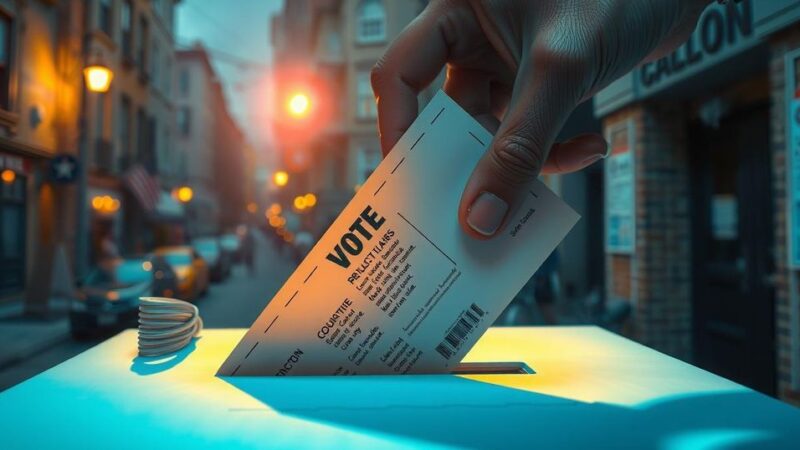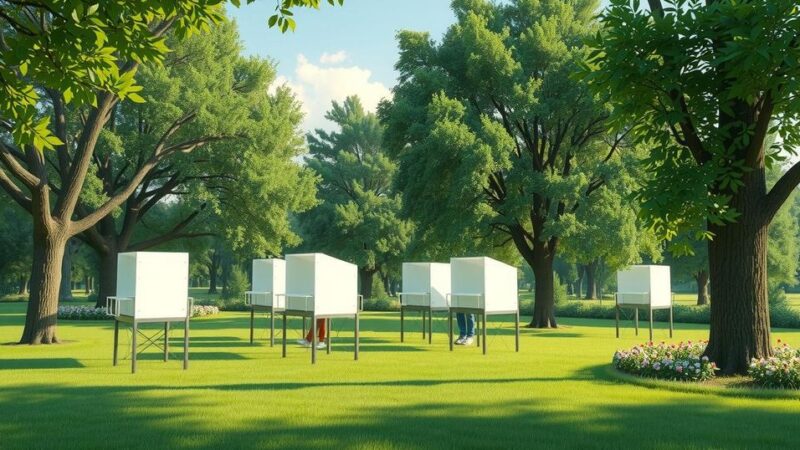Nicolás Maduro is to take the oath of office for a third term in Venezuela amidst protests and the detention of opposition leader María Corina Machado. International leaders, including Donald Trump, criticized Machado’s detention while condemning Maduro’s regime. Reports indicate heightened repression against dissent ahead of the inauguration, drawing international concern over human rights violations in Venezuela.
In Caracas, Venezuela’s President Nicolás Maduro is set to take the oath of office for a third term, despite widespread protests and international condemnation over the legitimacy of the electoral process. Leading opposition figure, María Corina Machado, emerged from hiding to participate in a demonstration against the government, only to be reportedly detained by security forces after the rally. Eyewitness accounts indicated a violent interception of her convoy, drawing sharp criticism from global leaders and human rights organizations.
World leaders have reacted strongly to Machado’s detention, with President-elect Donald Trump referring to both her and Edmundo González Urrutia as ‘freedom fighters’ who must be ensured safety. International responses have varied from outright denouncement, with nations such as Ecuador and Italy describing the Maduro government as a dictatorship, to calls for solidarity with the Venezuelan people in the quest for democracy.
Further unrest was observed, as government opponents reported increased repression in the lead-up to Maduro’s inauguration, including the arrests of other political candidates and activists. The United Nations has also expressed concerns over the surge of arbitrary detentions amid the political turmoil. Maduro has maintained his grip on power through the support of military forces, a loyalist judiciary, and sympathizers in key state institutions, despite the dire state of the nation’s economy.
Amidst rising tensions and a divided national response, loyalty among Maduro’s supporters remains strong, demonstrated by counter-protests in favor of his regime. The struggle for political control continues as Machado and other opposition members vow to persist in their calls for democratic governance in Venezuela.
The political landscape in Venezuela is characterized by ongoing tensions between the Maduro government and opposition forces. Nicolás Maduro, having succeeded Hugo Chávez in 2013, has faced multiple allegations of electoral fraud and repression against dissenting voices. The recent electoral process has sparked extensive protests and international scrutiny, especially following the detention of prominent opposition figures such as María Corina Machado. Her arrest has brought renewed attention to the human rights violations occurring under Maduro’s administration, compelling various nations to denounce the situation. The economic situation in Venezuela remains dire, further complicating the struggle for political legitimacy and civil rights.
The unfolding situation in Venezuela reflects a profound crisis of governance marked by severe repression and a lack of democratic legitimacy. As Nicolás Maduro prepares to take office again amidst protests and international criticism, the plight of opposition leaders like María Corina Machado highlights the ongoing struggle for human rights and political freedoms in the country. It remains crucial for the international community to persist in advocating for a peaceful resolution and the restoration of democratic order in Venezuela.
Original Source: www.cbsnews.com






